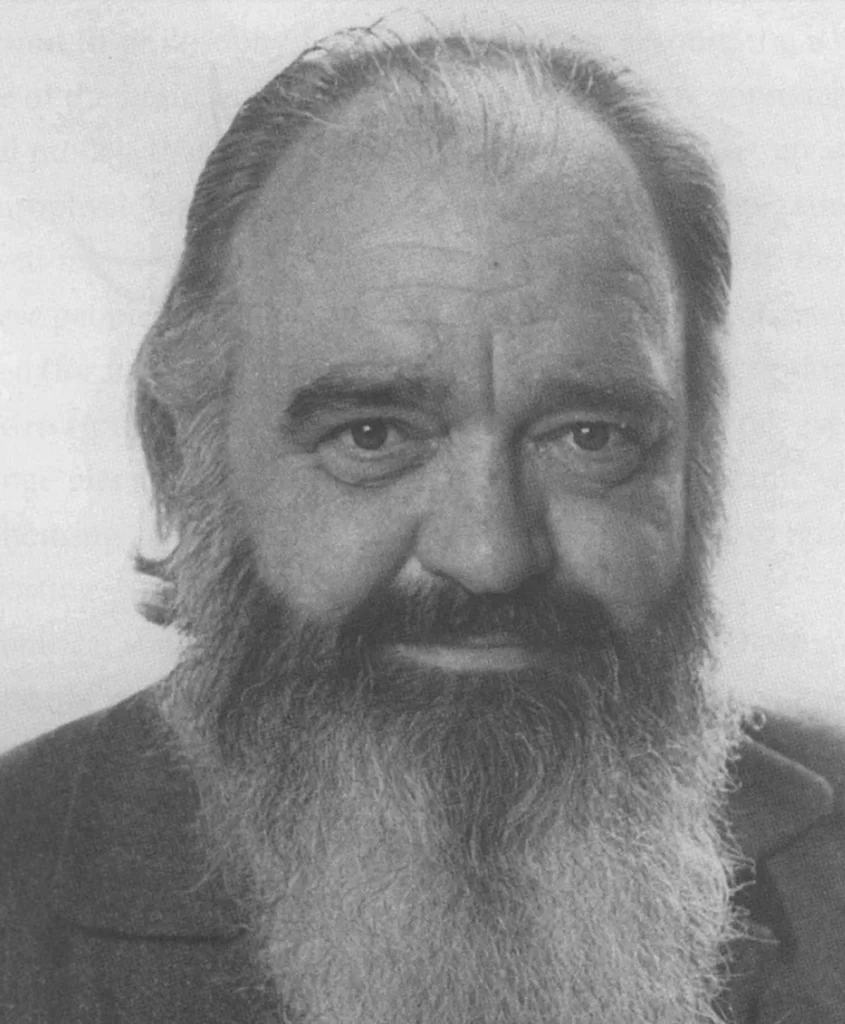Canada is a society where all people are equal and where they share some fundamental values based upon freedom. The search for this Canadian identity, as much as my philosophical views, had led me to insist on the charter.
—Pierre Elliott Trudeau
Canadian identity
For any worthwhile study of society must be philosophical in character and any worthwhile philosophy must be concerned with the nature of human society. — Peter Winch
This discussion, taken from my uOttawa PhD thesis (2020, pp. 57-88), presents a constructivist definition of Canada. Canadian society is conceptualized as an open, scientific, knowledge-making sociotechnical society concerned with self-governance for survival in a changing environment (Bacon; Beer, 1984; Bunge, 1975, 1977, 1979, 1999; Descartes; Dewey, 1912, 1938/2018, 1984; Hume, 1748/1902; James; Popper, 1957, 1966, 2003, 2014; Weick, 1969/1979, 1995).
In short, Canada is presented as a pragmatic liberal society. See Table: STEI-KW and Society. The researcher’s assumptions regarding Canadian society (as a pragmatic liberal society) are based on his personal experience and are framed as a carefully defined academic idea.
- Canadian identity as a technology
- Systemism
- Of an open liberal society
- Core liberal values
- Pragmatic ethics
- Weick’s sensemaking model
- Scientific values
You may also be interested in Scientific method in research.

Canadian identity as a technology
Within science and technology studies (STS), technology is conceptualized as sociotechnology (social technology) and sociotechnical system mirroring society. Within the social construction of technology (SCOT) approach, technology (STEI-KW) is conceptualized as a knowledge-making epistemology (empirical pragmatic liberalism). STEI-KW is an elision for a sociotechnical adaptation of Mario Bunge‘s (1975) technoethical pragmatic value theory (TEI) coupled with Karl Weick’s (1969, 1979, 1995, 2001, 2009) sensemaking model.
What is presented here is a social systems theory of society. A social systems theory needs a theory of social structure and a political theory of governance and collaborative knowledge making. Put differently, the key properties of Canadian society as a sociotechnical system – social structure and values shaping citizen behaviour – need to be identified and elaborated. STEI-KW is constructed through interdisciplinary synthesis of various theoretical and conceptual threads within a systems framework from philosophically congruent research fields/knowledge areas – at the intersection of STS, a constructivist theory of knowledge, a pragmatic philosophy of science and technology, and pragmatic ethics. Bunge’s (1979) systemism theorizes society as an open social system with emergent properties. Systemism is adopted for theorizing the social structure of society. The key social values discussed are sociopolitical (liberalism), pragmatic ethics, knowledge making, and scientific (pragmatic philosophy).
Liberalism is theorized through Popper’s (1966/2013, 2016) political philosophy of an “Open Society,” a staunch defense of liberalism (in opposition to totalitarianism) based on his philosophy of science known as critical rationalism. Popper’s (1966) political philosophy is augmented with a historical understanding of core liberal values emerging from the Enlightenment and the Scientific Revolution for a political ideology—reason, skepticism and science, and liberty. Pragmatic ethics are elaborated through Bunge’s (1975) pragmatic technoethics, serving as a paradigm (an overarching framework) guiding the application of key societal normative ethics perspectives – deontology (duty), rights, virtue, and utilitarianism. Weick’s (1969/1979, 1995) sensemaking model is applied as a constructivist theory of knowledge construction to anchor discussion of knowledge making (as a social value) in a scientific framework to inform effective knowledge management. A non-justificationist theory of science that underlies a constructivist epistemology of knowledge making is presented – empirical pragmatism as constructivism. Discussion of social scientific values is integrated with a discussion of the epistemological foundations of STEI-KW as a sociotechnical theory of society (elaborated in a separate post, see Scientific method in research). The main point in this vein is, Canadian society espouses secular values (methodological skepticism) and is a trusting society (risk accepting) because it is a scientific society.
Systemism
Bunge’s (1979) systemism is a social systems theory grounded in theoretical sociology. Every theoretical view of society has two components, ontological and methodological. The ontological concerns the nature of society and the methodological concerns the way to study it. Individualism and holism are both inadequate frameworks for studying societies. Individualism ignores social relations and the emergent properties of any society such as social cohesion and social mobility. A society is understood as “a collection of individuals and every property of it is a resultant or aggregation of properties of its members (individualism, atomism, or reductionism).” Holism, in comparison, refuses to analyze social relations and emergent properties, and loses sight of the individual. A society is understood as “a totality transcending its membership and is endowed with properties that cannot be traced back to either the properties of its members or the interactions among the latter (holism or collectivism).” On ontological grounds, a society is “neither a mere aggregate of individuals nor a supraindividual entity: it is a system of interconnected individuals”; society has systemic or global properties; and interaction between two societies is an individual-individual affair where “each individual occupies a definite place in his society. And social change is a change in the social structure of a society – hence a change at both the societal and the individual levels” (p. 16). On methodological grounds, 1) The proper study of society is “the study of the socially relevant features of the individual as well as the research into the properties and changes of society as a whole”; 2) The explanation of social facts “must be in terms of individuals and groups as well as their interactions”; and 3) “Sociological hypotheses and theories are to be tested against social and historical data.” Systemism lacks the aforementioned ontological and methodological defects and “combines the desirable features of the previous views, in particular the hard-nosedness of individualism with the holistic emphasis on totality and emergence” (p. 14).
A society can be viewed as “a system of interrelated individuals sharing an environment while some of its properties are aggregations of properties of its components, others derive from the relationships among the latter” (Bunge, 1979, p. 13). A society σ is representable as an ordered triple (Composition of σ, Environment of σ, Structure of σ), where the structure of σ is the collection of relations (in particular connections) among components of σ. A society can be thus construed as its membership together with its structure. A society is thus “neither a mere ‘sum’ (aggregate) of individuals nor a Platonic idea (i.e., an institution) transcending them.” A society is “a concrete system of individuals beating social relations among themselves and is therefore representable as a certain relational structure” (p. 14). Every society is comprised of social subsystems, such as the health system, the school system, and the political system. Every social system “can be analyzed into a number of subsystems each of which performs a certain function (i.e., is characterized by a peculiar subset of social relations or of transformation relations).” The “entire membership of any given society is distributed among its various subsystems, with all of its individual members belonging to several subsystems at a time” (p. 25).
Bunge (1979) theorizes institutions as sets of social systems. An F-sector of a society is “the set of all social subsystems (schools) performing a certain function F (e.g. the set of all schools)” (p. 24). An F-institution is defined as the family of all F-sectors. An institution is “the set of all F-sectors for a given F.” Thus, “the set of all state systems is called Government, the collection of all school sectors School, the set of all trade unions Organized Labor, the set of all postal systems Mail, and so on” (p. 27). The institutional rules “reflect the way the subsystems function optimally or, if preferred, they are prescriptions for operating the system in an efficient manner (i.e. for attaining its goals or rather those of whom the system serves)” (p. 28).
Of an open liberal society
Austrian-born British philosopher Karl Popper developed the concept of open society as discussed in this thesis during WWII. The Open Society and its Enemies (1966) and The Poverty of Historicism (1957) lay out Popper’s political philosophy and represent what Popper saw as his “war effort,” penned in response to the rise of fascism in Europe and in his native Austria in the 1920s and 1930s (Popper, 2005). Open Society does not frame an open liberal society as some kind of utopian state. Liberal society is fundamentally contradictory, non-deterministically unfolding within a historical process of reconciling facts and standards as “one of the bases of the liberal tradition” (Popper, 1966, p. 743/804). Popper sought to underscore a scientific philosophy to political, social, and historical analysis, applying his philosophy of science, critical rationalism, to offer an epistemological critique of totalitarianism (political change), understood in contrast to liberalism, and of deterministic social and historical analyses.
Two key points can help define Popper’s (1966) theory of an open society. The first point relates to Popper’s reading of social evolution, of society becoming increasingly more individualistic and anxious as it comes to accept the uncertainty associated with an abstract society (a society marked by impersonal social relations). The second point relates to Popper’s epistemological critique of political practices and of historicism, notably of the philosophy and social sciences of Plato, Hegel, and Marx.
Popper saw an open society as the outcome of a social evolutionary process that has come to characterize western societies since at least the Scientific Revolution and which involves a fundamental shift in social structure, where the comforts of certainty, a structured life, and the “group spirit of tribalism” found in closed societies is replaced by anxiety, the cost of freedom and individualism–evolution from a tribalistic, hierarchical, conformist, or closed society, to an individualistic, abstract, and humanistic open society which he identified with liberalism. The beginnings of an open society, which Popper traces to the classical Greeks, was marked by a growing distinction between natural and human-made laws, and an increase in personal responsibility for moral choices. As opposed to a “magical or tribal or collectivist society,” an open society is one “in which individuals are confronted with personal decisions.” The ensuing anxiety is a worthwhile price to pay for the benefits of living in an open society, namely freedom and social progress. “It is the price we have to pay for being human” (Open Society Vol. 1, 176).
Popper levels an epistemological critique of political practices and of deterministic views of historical development or “historicism.” Lay at the roots of totalitarianism a methodological blind spot, a lack of critical perspective, regarding political practices and deterministic histories. Plato, Hegel, and Marx believed history unfolded in a certain direction to an end point. Historicism posits that history is governed by immutable historical laws or principles. For Hegel, history would come to an end when all the internal contradictions in human ideas were finally resolved through the gradual unfolding of reason. Marx’s dialectical materialism inverted Hegel’s idealism and predicted history would end when the capitalist modes of production create social unrest due to massive social inequalities to the point of provoking a working-class revolution.
The productive power unleashed by new technologies and factory production under capitalism was ultimately incompatible with capitalism as an economic and political system, which was marked by inefficiency, instability and injustice. Marx predicted that these flaws would inevitably lead to revolution followed by establishment of communist society. This final stage of human development would be one of material abundance and true freedom and equality for all. (Gorton, n.d.)
Historicists who claimed or presumed a grasp of “the laws of historical development” are misguided in their analysis because they took a deterministic approach to predict the future. For Popper, a scientific approach to knowledge construction can only offer tentative judgments. Critical rationalism is a philosophical critique of certainty, its defining logic is skepticism toward knowledge claims. The falsifiability approach to the criticism of knowledge claims suggests we can only approach the truth rationally by reducing our ignorance about the verisimilitude of knowledge claims. One cannot make deterministic predictions about the future, not only because pure reason, inductivist empiricism, and positivist empiricist verificationism are illogical and/or reductionist, for example, they ignore the role of the observer as an active agent in the construction of knowledge and the personal values embodied therein, but also because these values themselves and the supposed facts, as well as what it means to do science and the purpose and social value of a scientific inquiry are all emergent concepts (Kuhn, 2012, famously described the process of the social construction of new scientific paradigms).
For Popper, a scientific approach to politics would direct one to the process of political change, instead of fixating on the character or personality of politicians (e.g., who should rule), as the only rational political approach to safeguarding liberalism, that is, to achieve peaceful, bloodless political change. “What has to be done if ever the people vote to establish a dictatorship?” Popper (2016) wrote in an op-ed (reprint) to the Economist. What if someone took office through the ballot box elections but then hijacked the democratic process. This can be avoided by instilling a fail-safe mechanism into the political change process (he advocated a two-party system, such as found in Great Britain). The problem of modern liberal democracies is not “who should rule?” Popper (2016) argued that a rational political theory should address an epistemological problem of government, namely, “how is the state to be constituted so that bad rulers can be got rid of without bloodshed, without violence?”
Core liberal values
The Enlightenment (the Age of Reason) was an intellectual-social movement emphasizing reason, skepticism and science, and liberty and the rule of law that took place in Europe and later in the United States and Canada during the late 17th and early 18th century. Liberalism as it has emerged from the ideals of the Enlightenment holds certain values that underlie a political philosophy (liberalism) characteristic of the identity and political culture of western nations. The core liberal values are reason, skepticism and science, and liberty. These liberal values would begin to cement through Enlightenment philosophers as a distinct political ideology, perhaps foremost among them is English philosopher John Locke, often considered the father of liberalism. Locke’s social contract theory inspired the United States Declaration of Independence. Other key Enlightenment figures associated with social contract theory include Hobbes and Rousseau. John Stuart Mill’s “conception of liberty justified the freedom of the individual in opposition to unlimited state and social control.” These core liberal values have become entrenched in western political culture and form the basis of today’s conceptions of what constitutes civil rights, human rights, civil liberties, and political freedoms, including the right to free speech and individualism (autonomy). In that vein, the privacy of personal and privileged information (against breaches by covert digital surveillance by government or business agents, in breach of trust or social contract and privacy regulations), and freedom from political interference, manipulation, and intimidation (through targeted propaganda, disinformation, or social trolling), protects the autonomy of individuals and keeps them free from undue political or political economic oppressive restriction–that is, protects their personal liberties.
Pragmatic ethics
Key societal ethical perspectives shaping social behavior of Canadians are deontology (duty), rights, virtue, utilitarianism, and pragmatism. See Ethical decision-making theories: Introduction to normative ethics. Bunge’s (1975, 1977) technoethical pragmatic value theory is applied as an overarching framework to conceptualize how these normative theories are operationalized in a Canadian context. See The technoethics of Mario Bunge. For Bunge (1975, 1977, 1999), ethics and technology are social constructions (social technologies). Ethics can be conceived of as a branch of technology. Ethical inquiries can be treated as technological inquiries are treated, applying scientific method principles. Moral statements can be evaluated as are technological rules. Moral statements ought to be fashioned as rules of conduct deriving from scientific statements and value judgements.
Bunge (1975, 1977) presents a value theory that can serve as a basis for weighing means, goals, and side effects, and thus form a basis for a pragmatic decision-making framework. Bunge (1975, 1977) suggests three technoethical rules for the researcher: 1) Evaluate goals jointly with side effects; 2) match the means and the goal technically and morally, and employ only worthy practical means and optimal knowledge; and 3) eschew any action where the output fails to balance the input because it is either inefficient or unfair. Bunge’s (1975, 1977) technoethical pragmatic value theory (TEI) can be applied to assesses technology—its use and value—by weighing the potential benefits against the potential costs with emphasis on efficiency and fairness. TEI can expressed as a problem-solving inquiry within a systems framework and framed as a technoethical approach.
The concepts of efficiency and fairness can be understood as competing social values. Rather than being rigid ontologies, for Bunge (1975, 1977), they represent socially constructed technologies or social values with pragmatic utility–an overarching goal of improvement and success. Fairness, like efficiency, is instrumental, not an end in and of itself. The end is improvement and success.
Weick’s sensemaking model
Weick’s sensemaking model is applied as a social constructivist theory of knowledge making to anchor the social value of knowledge making on scientific grounds. Weick’s sensemaking model (1969/1979, 1995, 2005; Weick, Sutcliffe, & Obstfeld, 2005) is a communication theory of knowledge making, the social construction of knowledge. Epistemological roots of sensemaking theory can be linked to phenomenology (broadly concerned with the subjectivity and intersubjectivity of human experiences) and general systems theory (broadly concerned with complex cybernetic systems). Two key concepts are, sensemaking happens as a result of iterative communication exchange between communication actors within an environment, and explicitness in communication (iterative communication cycles that turn tacit knowledge into explicit knowledge) improves the efficiency of the sensemaking process, that is, it reduces uncertainty in the information environment. Equivocality is “the engine that motivates people to organize” (Sutcliffe & Obstfeld, 2005). Reducing equivocality (unpredictability) in the information environment happens through reducing uncertainty resulting from variances in perceptions among stakeholder groups (communication actors) through communication interaction opportunities to construct common knowledge/understandings. Interpersonal interaction among participants to construct common knowledge is the most effective way to reduce equivocality. Sensemaking is the process by which people give meaning to an experience. The point of sensemaking is to reduce equivocality. Participants organize processes of information exchange to make sense of equivocal information during which the meanings of terms and events are negotiated. The end product of sensemaking is common knowledge.
Human organizations engage in information processing to reduce equivocality of information. Through sharing information, participants jointly make sense of reality by reducing equivocality. Sensemaking describes how information is exchanged and processed between communication actors through interaction and iteration. Sensemaking involves three key strategies, enactment, selection, and retention of information. Sensemaking is relevant to new information (e.g., during learning) where uncertainty about meanings is introduced into an environment (Weick, 1995). In enactment, in equivocal environments in organizational systems, for example, an observer brackets interpretations of an event or message, building on past personal experiences and taking cues from their environment, then selects an interpretation (makes sense of the information) and then solidifies a meaning with time through iteration and interaction with others (feedback corrects or changes meanings). Human organizations exist in an information environment. A university or a classroom can be seen as an information environment. Equivocality then is a problem of confusion not of ignorance. The remedy is to interact with others in the information environment in ongoing communication opportunities–behavior cycles (ongoing interpersonal interaction), or less preferably, assembly rules (written text); through social interaction and iteration the ambiguity of information is reduced, that is, common knowledge is socially constructed. Sensemaking it is a process of social construction of meanings, it is both subjective and intersubjective. Sensemaking starts with noticing and bracketing, is about labeling, is retrospective, is about presumption, is social and systemic, is about action, and is about organizing through communication (Weick, 1969, 1995).
Scientific values
A scientific society accepts uncertainty as a sociopolitical value in analogy to how scientists accept uncertainty about the truthfulness of knowledge claims derived from scientific inquiries, that is, methodological skepticism. Trust can be understood as a subset of risk, as risk accepting–more specifically, trust can be defined as acceptable uncertainty (both a vulnerability and a strength). A scientific society is accepting of political risk, which is a form of trust. According to Hofstede’s (1980, 2001) National Culture 6-D Model, Canada and western nations generally score on the lower end of the Uncertainty Avoidance dimension.
Canadian society can be defined by two key scientific values that define it as a secular and trusting society, critical rationalism and pragmatism. Scientific knowledge is tentative (Popper) – open to correction; an ongoing inquiry (Dewey, Popper). Knowledge is accepted pragmatically even if not positively verified by measurement or observation or experience or rationally (in the classical sense) justified if it has utility [pragmatic fallibilism (Peirce), instrumentalism (Dewey and James), and Bunge’s fallibilism (systems as useful paradigms)] and it has not been falsified (critical rationalism).
Uncertainty underlying methodological skepticism stems from an uncertain epistemology underlying knowledge making (e.g./notably, a mind-matter split associated with rational reasoning, and illogical inductive reasoning associated with empirical reasoning, i.e., the empiricist inductive reasoning of Francis Bacon). Both inductive and deductive reasoning are circular. The uncertainty associated with methodological skepticism can also be grounded in the realist ontology of pragmatism which dissolves the fact-value split but leaves us with a sobering realization that we are incapable of claiming pure knowledge (knowledge free from value). Finally, Dewey’s transactional realism sees knowledge as having both subjective and intersubjective dimensions, leaving us with the conclusion that knowledge is a social construction comprised of facts and values inextricably intertwined, but uniquely expressed/manifested for every individual (in account of subjective experience).
Related content
Ethical decision-making theories: Introduction to normative ethics
Ethical Hacking Sociotechnology
The technoethics of Mario Bunge
What is science? What is the scientific method?
Back to MA/PhD Thesis Writing Resources (templates)
Back to DTI Courses



